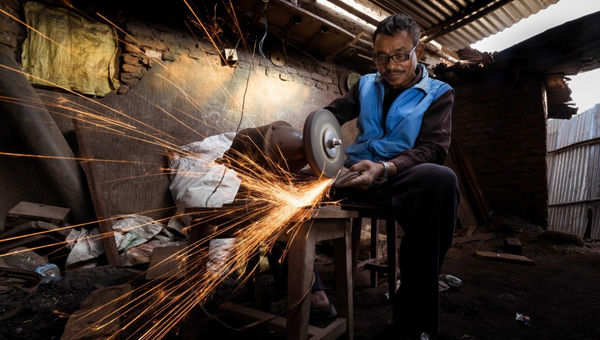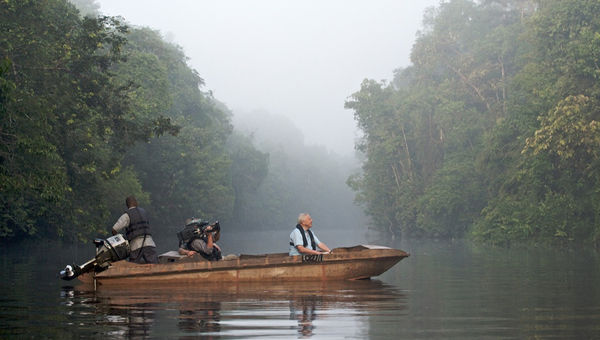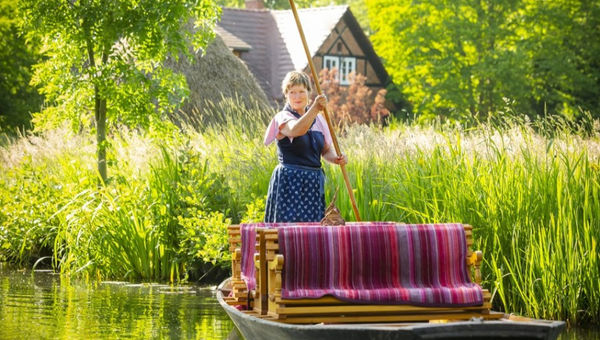As the demand for deeper, more meaningful travel continues to grow, a new class of hyperlocal experience providers is quietly reshaping the way Asia is explored.
Tapping into this network of small-scale, often family-run operators could be the key to curating richer, more authentic journeys – especially for younger and more experience-led travellers.

Sop Moei Arts is a social enterprise in Chiang Mai supporting Karen artisans through fair-trade textile weaving, preserving traditional skills while empowering rural communities. Photo Credit: Sop Moei Arts
Take Sop Moei Arts in Chiang Mai, Thailand. More than a textile gallery, this social enterprise supports Karen hilltribe artisans and offers weaving workshops in a peaceful riverside studio. Travellers leave with not only handmade fabrics, but also an understanding of the stories and techniques behind them – making it a perfect add-on for culture-seekers headed to northern Thailand.

Bambike Ecotours offers guided bicycle tours on handcrafted bamboo bikes, exploring Manila’s historic Intramuros while promoting sustainability, local craftsmanship, and community-based tourism in the Philippines. Photo Credit: Bambike Ecotours
In the Philippines, Bambike Ecotours takes travellers through the cobblestoned streets of Intramuros on bicycles handmade from bamboo by Gawad Kalinga communities. The experience blends design, heritage, and sustainable tourism in a way few city tours can replicate.

Backstreet Academy connects travellers with local artisans and hosts across Asia for hands-on cultural experiences, supporting grassroots economies through community-based, peer-to-peer tourism. Photo Credit: Backstreet Academy
Meanwhile in Vietnam, Backstreet Academy partners with local artisans and hosts in Hanoi and Hoi An to run hands-on experiences – think traditional paper mask painting, blacksmithing, or fishing in basket boats. These micro-operators might not speak fluent English or operate at scale, but they offer something increasingly rare: authenticity and human connection.

Sukau Rainforest Lodge has even hosted renowned figures like David Attenborough, who stayed there while filming the rich biodiversity of Borneo. Photo Credit: Borneo Eco Tours
In Malaysia, Borneo Eco Tours has long championed ecotourism, well before it became mainstream. Founded in 1991, the operator later established Sukau Rainforest Lodge in Sabah’s Kinabatangan region – now a National Geographic Unique Lodge of the World. Here, guests can spot pygmy elephants, proboscis monkeys and red leaf monkeys from riverboats, while also engaging with local conservation and community efforts. The company avoids OTAs to protect the lodge’s uniqueness, instead working closely with agents and wholesalers who value authentic, low-impact travel.
Related: Borneo is where the magic of travel comes alive

Manuela Filko, a lifelong Lehde resident, has guided Spreewald boat tours for 25 years, sharing regional stories and traditions. Photo Credit: Spreewald
Even beyond Asia, this hyperlocal movement is taking root. In the picturesque lagoon town of Spreewald, Germany, Haus Quodda-Blick, run by Manuela Filko, is an exemplification of a family-run guesthouse and boat tour operator that offers warm hospitality, home-cooked meals, and stories passed down through generations. For travellers, it’s the kind of slow, heartfelt travel that lingers long after check-out.
The challenge for agents? These operators often don’t show up in GDS systems or mainstream B2B platforms. Many are discovered organically – through serendipitous encounters on fam trips, a fleeting Facebook post in a niche travel group, or word-of-mouth between trusted peers.